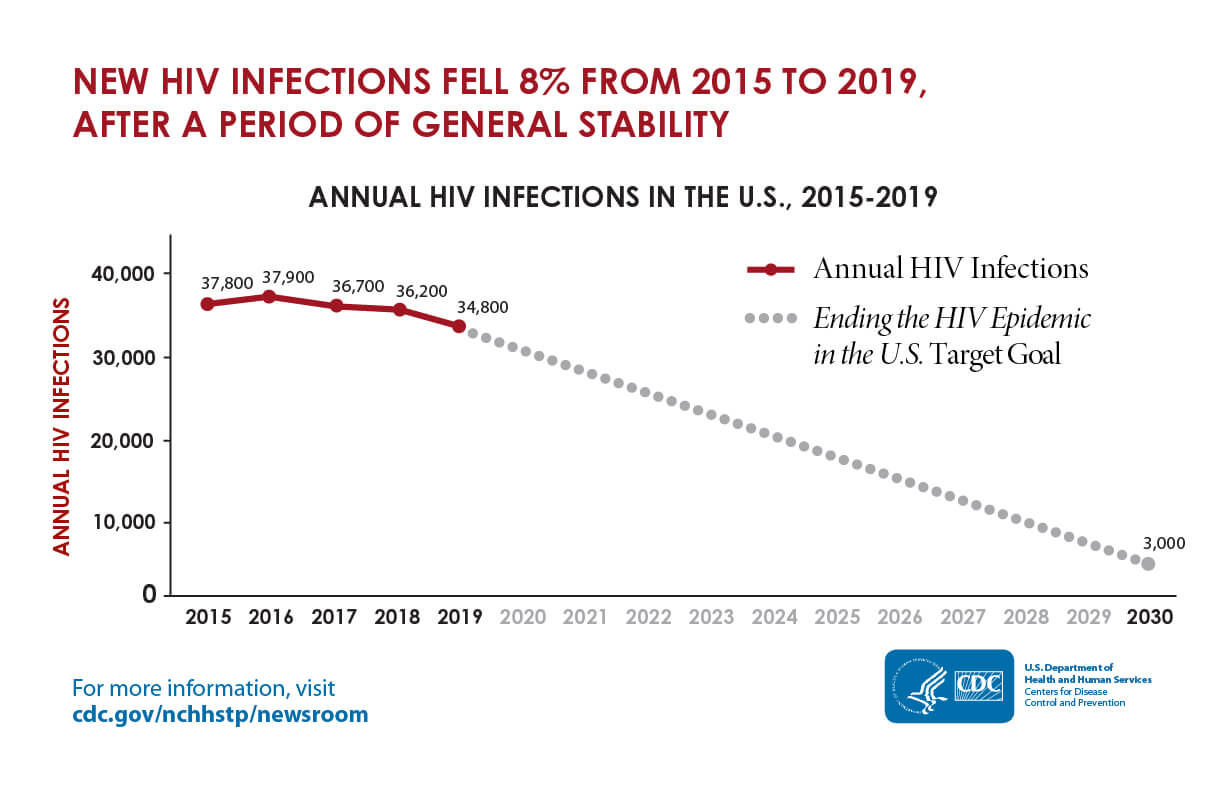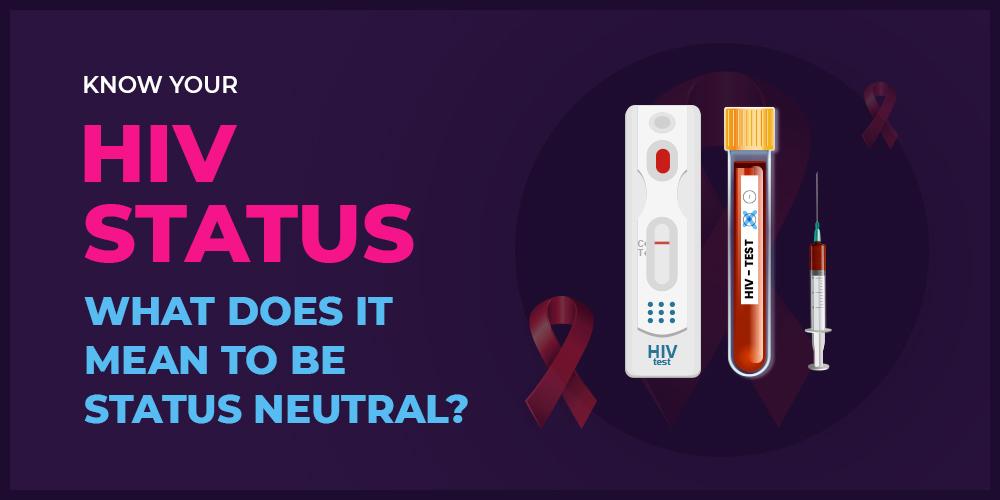There has been a lot of effort made to help decrease HIV transmission around the globe. Getting tested to know your HIV status and learning more about transmission and prevention has made a significant difference in the number of new HIV diagnoses in the past few years. In fact, the rates of transmission have dropped steadily by 8% since 2015. The CDC even estimates a significant decline through 2030 that could essentially end the HIV epidemic in the US.

Getting tested to know your HIV status is very important, especially if you are at risk of transmission. And thanks to HIV prevention and treatment education, we are closer to hitting HIV status neutrality than ever before. But you may have heard the term “status neutrality” related to HIV before – so, what does this mean exactly?
Let’s talk about it.
1. How to Check Your HIV Status and Prevent Transmission
One way that we can all slow down the rate of HIV transmission is to know your HIV status through regular testing. Everyone should be tested for HIV at least once in their life, but it is most commonly recommended for adults to be tested every year, depending on their risk factors.
There are several ways to get an HIV test. Most doctor’s offices and clinics can provide an HIV test through a blood sample, which will take a few days for a result. The FDA has also approved an at-home test option for even faster results.
Apart from knowing your HIV status, you should also be aware of how HIV is transmitted and how to lower your risk of exposure.
HIV can be transmitted from one person to another through bodily fluids, most commonly semen, vaginal or anal fluids, blood, or breastmilk. Most people are exposed to HIV through unprotected (i.e. condomless) sexual intercourse, shared intravenous needles, or more rarely through blood transfusions or childbirth and breastfeeding.
However, if a person is HIV+ but their viral load is suppressed through HIV treatment medication, their status may be undetectable. This means that the number of viral cells in their body is nearly immeasurable and therefore they will not transmit HIV to another person. This is commonly called “undetectable = untransmittable” or “U=U.”
2. What is HIV Neutral or Status Neutrality?
Now, what does this have to do with HIV status neutrality and what does this term mean exactly?
HIV status neutral or HIV neutral is actually an objective to create a world where HIV is untransmittable because treatment is widely effective and available across the globe. This goal can be obtained by providing HIV prevention and treatment options to everyone, regardless of health insurance or financial limitations.
Antiretroviral therapy (ART) is a medication regimen that can be given to someone who is HIV+ to suppress their viral load. HIV reproduces naturally in the body by overtaking healthy immune cells that are trying to fight off the virus. ART stops HIV from reproducing so more viral cells cannot be made. While this does not cure HIV, it can suppress the viral load to an undetectable level.
But another key part to achieving an HIV neutral status is making PrEP more readily available to anyone who is not currently HIV+. PrEP is a medication that can reduce the risk of transmission after exposure by nearly 99% if taken as directed.
PrEP can prevent HIV transmission by stopping the virus from reproducing the moment it enters into the body. There are several forms of PrEP available. Truvada and Descovy are two types of oral medications, and Apretude is an injectable form that was recently approved by the FDA.
3. How Can We Make an HIV Neutral World a Reality?
Creating a world where there are no new diagnoses of HIV could be achievable. We can all do our part in helping to make HIV status neutrality a reality:
Make Sure You Know Your HIV Status
First, make sure that you are getting routine HIV tests to monitor your status. This should be a part of your annual health screenings along with other STDs. If you believe you may have been exposed, you should tell your doctor right away so you can either get tested or receive PEP (post-exposure prophylaxis) treatment to prevent transmission.
Learn About PrEP and Prevention
PrEP is undoubtedly one of the most effective ways to prevent HIV transmission if you are accidentally exposed. This is something that you should discuss with your doctor or a healthcare provider to see which type of PrEP medication is the best option for you.
You should also discuss HIV prevention strategies with your partner(s), including using condoms and going on PrEP. This can be an uncomfortable conversation to start up – but it is a very important subject to talk about.
Make HIV Treatment Easily Available
It is estimated that only about 25% of people who qualify to receive PrEP actually use this prevention method. There are many reasons why, but one major obstacle is the cost of PrEP without insurance and access to healthcare resources.
PrEP Daily is here to help people get connected with local resources such as PrEP providers and cost assistance programs. If you have questions about going on PrEP and want to find a doctor in your area, we can help you!
End Stigma Around HIV, PrEP, and Treatment
Another step that we can all take is to help end stigma and discrimination about HIV. Many people avoid talking about HIV transmission and prevention because it can be uncomfortable. Sadly, this prevents many people who are at-risk from reaching out for help or learning how to protect themselves from transmission.
We can help to end the stigma around this topic by openly talking about why you should know your HIV status and get tested regularly. Educate yourself on HIV prevention and treatment methods, too, so you can share factual information and help others learn.
Over to You
HIV status neutrality can be achieved if we all do our part to know our HIV status, get tested, and use prevention and treatment methods. Together, we can help to make a world that is HIV neutral where everyone receives prevention and treatment to stop HIV transmission.
If you are interested in getting on PrEP and want to get in touch with local organizations, please reach out to our team at PrEP Daily. Our navigators are here to help you find a PrEP provider to discuss options and help you safeguard yourself and others from HIV transmission.

